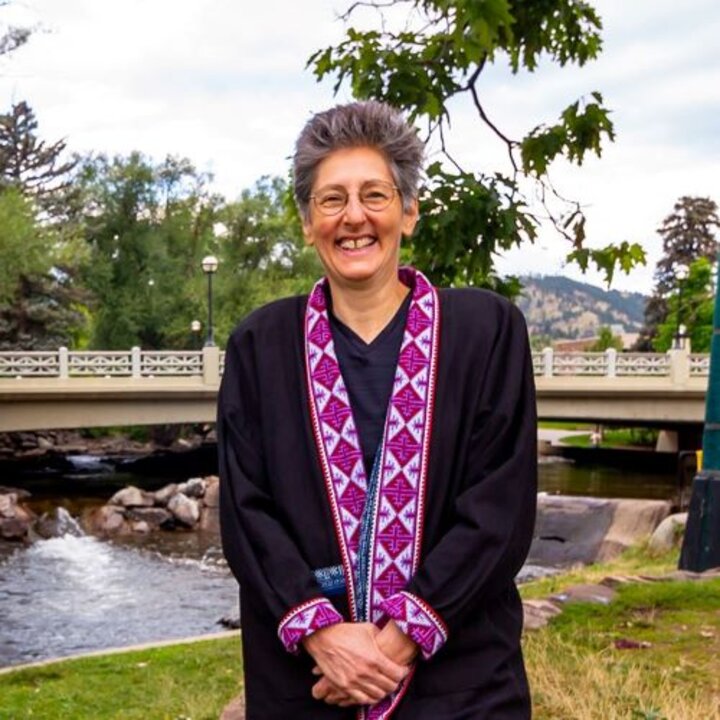
Sarah Michaels
Professor Emeritus Political Science University of Nebraska-Lincoln
Contact
- Address
-
533 OLDH
Lincoln, NE 68588-0328 - Phone
-
402-472-2300 On-campus 2-2300
Dr. Sarah Michaels is Professor, Department of Political Science and Faculty Fellow, Public Policy Center, University of Nebraska-Lincoln, USA. She was a Fulbright Canada Distinguished Chair in Environmental Science at Carleton University, Ottawa, Canada. She has consulted for the U.S. State Department, the U.S. Water Partnership, the International Sava River Basin Commission, the Missouri River Recovery Implementation Committee, and Environment and Climate Change Canada.
Areas of Interest
- Water resources policy and governance
- Uncertainty and knowledge uptake in public policy decision making
- Science-policy interface
- Comparative environmental policy
- Regional governance
Fellowships
- Advanced Study Program Faculty Fellowship, National Center for Atmospheric Research, Boulder, Colorado
- Gilbert F. White Fellowship, Resources for the Future, Washington, District of Columbia
- Ciriacy-Wantrup Postdoctoral Fellowship in Environmental Economics, University of California, Berkeley, California
- Stuart Nesbitt White Research Fellowship, Emergency Preparedness Canada, University of Colorado, Boulder, Colorado
Selected Publications
Michaels, S. Forthcoming. Uncertainty, flood risk, integrated management and climate change adaptation in Canada’s Ottawa River Basin. In Making Water Decisions for Climate Change Adaptation. Global Water Security Issues Paper Series. UNESCO Headquarters and UNESCO i-WSSM.
Michaels, S. Forthcoming. Dimensions of uncertainty in mitigating flooding. In Mearns, L., Forest, C., Fowler, H., Lempert, R. and Wilby, R. (eds.) Uncertainty in Climate Change Research: An Integrated Approach. New York, NY: Springer.
Michaels, S. Forthcoming. Laying the policy groundwork for considering integrated uncertainty. In Mearns, L., Forest, C., Fowler, H., Lempert, R. and Wilby, R. (eds.) Uncertainty in Climate Change Research: An Integrated Approach. New York, NY: Springer.
Michaels, S., Auld, G., Cooke, S., Young, N., Bennett, J., & Vermaire, J. 2023. Conservation, uncertainty and intellectual humility. Environmental Conservation 50:4:196-201. doi:10.1017/S0376892923000176.
Michaels, S. 2023. Differentiating between urban flood risk as a unitary problem and as a strand in a braided problem set: Implications for administrative coordination. PLOS Water 2(3): e0000090. https://doi.org/10.1371/journal.pwat.0000090.
Cooke, S.J., Michaels, S., Nyboer, E.A., Schiller, L., Littlechild, D.B.R., Hanna, D., Robichaud, C.D., Murdoch, A., Roche, D., Soroye, P., Vermaire, J.C., Nguyen, V.M., Young, N., Provencher, J.F., Smith, P.A., Mitchell, G.W., Avery-Gomm, S., Davy, C.M., Buxton, R.T., Rytwinski, T., Fahrig, L. Bennett, J.R. and Auld, G. 2022. Reconceptualizing conservation. PLOS Sustainability & Transformation. 1(5): e0000016. https://doi.org/ 10.1371/journal.pstr.0000016.
Crase, L., Cooper, B, Michaels, S. and Connor, J. 2020. Is Australian water policy reform transferable globally, given future climate extremes? Climate Policy 20:5:641-651.
Michaels, S. and Gruszczynski M. 2016. Venue matters: Deliberating on Missouri River water diversions in congressional committee hearings. Journal of Contemporary Water Research & Education 158:August 2016:132-147.
de Loë, R., Murray, D., Michaels, S. and Plummer, R. 2016. Policy transfer among regional-level organizations: Insights from source water protection in Ontario. Environmental Management 58:1:31-47.
Michaels, S. 2016. Probabilistic forecasting and the reshaping of flood risk management. In Gopalakrishnan, C. (ed.) Designing Water Disaster Management Policies: Theory and Empirics. New York: Routledge, pp. 41-51. Initially published in Journal of Natural Resources Policy Research, 2015, 7:1:41-51.
Gruszczynski, M. and Michaels, S. 2014. Localized concerns, scientific argumentation, framing and federalism. Journal of Natural Resources Policy Research 6:2-3:173-193.
Michaels, S., Holmes, J. and Shaxson, L. 2014. Science communication and the tension between evidence-based and inclusive features of policy making. In Drake, J., Kontar, Y. and Rife, G. (eds.) New Trends in Earth Science Outreach and Engagement: The Nature of Communication. Advances in Natural and Technological Hazards Research. New York, NY: Springer 38:83-92.
Gruszczynski, M.W. and Michaels, S. 2012. The evolution of elite framing following enactment of legislation. Policy Sciences 45:4:359-384.
Michaels, S. and Tyre, A. 2012. How indeterminism shapes ecologists’ contributions to managing socio-ecological systems. Conservation Letters 5:4:289-295.